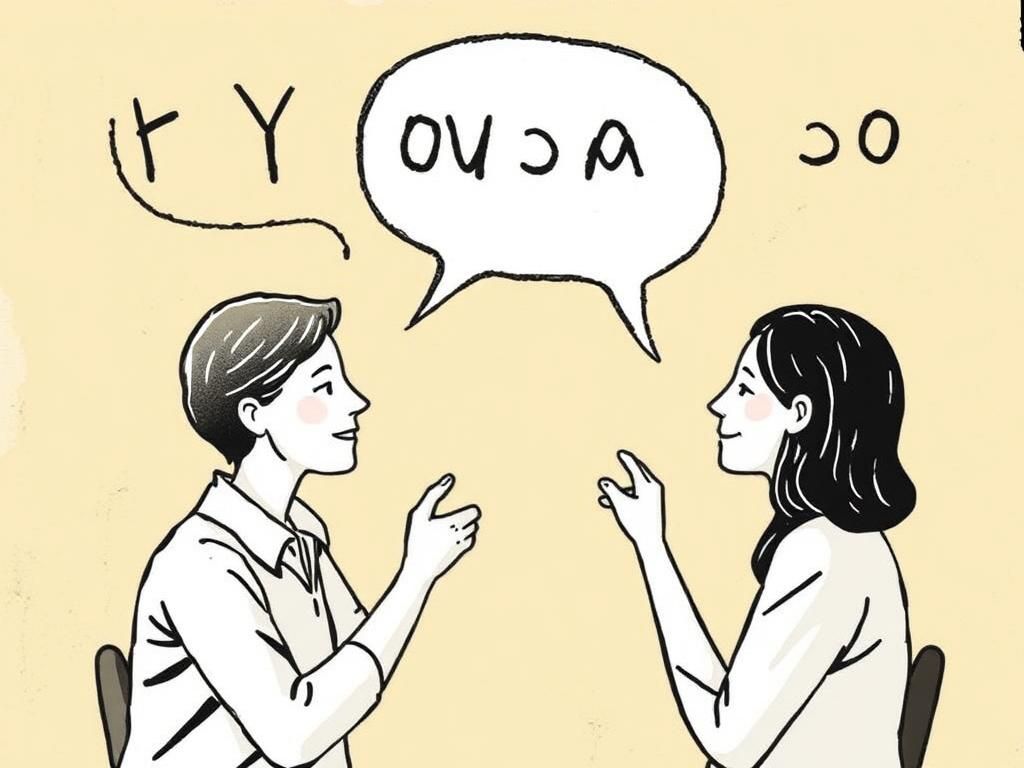Understanding language is a critical skill in navigating social interactions, whether casual or professional. The phrase “if you say so” is a commonly used expression that often signifies much more than simple affirmation. It can carry subtle shades of meaning that influence how communication unfolds in various contexts. Recognizing these nuances is essential for effective communication. In this article, we will explore the if you say so meaning, its origins, interpretations, psychological implications, and cultural variations, alongside practical examples.
Etymology and History
Origin of the Phrase
The phrase “if you say so” has evolved over time, originating from the English language’s rich tapestry of expressions. Historically, it serves as a conversational device that can imply agreement, sarcasm, or reluctance depending on context and tone. The phrase’s simplicity belies its complexity, reflecting the nature of speech itself—often open to interpretation based on the speaker’s intention and the listener’s understanding.
Many linguists believe that it appeared prominently in colloquial speech during the 20th century. However, traces of similar sentiments can be found in earlier literature, where individuals often expressed agreement or skepticism in casual exchanges. This evolution suggests a long-standing human instinct to suggest deference while also holding personal opinions.
Examples of Early Usage in Literature and Spoken Language
While specific documented instances of “if you say so” in literature might be scarce, the essence of the phrase—conveying acknowledgment of another’s authority or opinion—can be seen in various plays and novels throughout history. Nonetheless, modern media, including films and television, popularized its use, etching it firmly into contemporary lexicon.
Common Interpretations
Agreement vs. Disagreement
The phrase “if you say so” often resides in a gray area between agreement and disagreement, making it a fascinating study in conversational dynamics.
Situations Where It Indicates Agreement
In some contexts, “if you say so” may genuinely indicate agreement. For instance:
– In a family conversation about weekend plans, when a parent suggests an activity, a child may reply, “If you say so,” signifying acceptance and looking forward to the plans.
– During a project meeting, if a colleague proposes a strategy, another might say, “If you say so,” showing compliance with the group’s decision.
Situations Where It Indicates Skepticism or Reluctance
Conversely, the phrase can imply skepticism. For example:
– If a friend insists on a particular restaurant choice, their companion may respond, “If you say so,” with a tone indicating they disagree but choose not to argue.
– In a debate, one participant might reply, “If you say so,” when dismissing another’s point, suggesting a lack of confidence in the previous statement.
Tone and Context
The tone of voice and context significantly impact how “if you say so” is interpreted.
The Role of Vocal Tone in Conveying Meaning
– A neutral tone can imply simple acceptance.
– A sarcastic tone may indicate doubt or criticism, as in saying, “Oh, right, if you say so.”
– A warm and supportive tone suggests genuine approval, conveying a sense of camaraderie.
How Context Influences Interpretation

Context plays a crucial role in discerning meaning. For instance:
– In a heated discussion, “if you say so” may sound dismissive, reflecting a disagreement.
– In a relaxed conversation, it could be a friendly acknowledgment of another’s perspective.
Synonyms and Alternatives
Similar Phrases
There are several phrases with meanings closely related to “if you say so.”
– “As you wish” often chills the dialogue, showing that one party will defer to the other’s preferences.
– “Whatever you say” generally implies a complete concession.
– “If that’s what you think” usually carries a hint of skepticism.
When to Use Alternatives
Choosing the right phrase can vary by situation:
– Using “as you wish” can suit more formal or traditional exchanges.
– “Whatever you say” may feel more casual or dismissive.
– “If that’s what you think” can become a conversational landmine if the intent is unclear.
Analyzing these alternatives helps sharpen one’s conversational skills and enhances the richness of interpersonal communication.
Psychological Implications
Interpretive Frameworks
The phrase “if you say so” can reveal much about a person’s emotions or mental state.
Feelings of Resignation
Using “if you say so” might indicate a feeling of resignation, suggesting that the speaker feels they lack control or options in a given situation.
Passive Acceptance
This phrase can also reflect passive acceptance, where one chooses not to engage in conflict, often avoiding deeper discussion that could arise from differing opinions. Understanding these underlying emotions can drastically change interpersonal dynamics.
Social Dynamics
The impact of “if you say so” on conversations is significant.
The Impact on Interpersonal Relationships
Using the phrase might reveal underlying power dynamics within a relationship:
– In authoritative settings, those lower in the hierarchy may use “if you say so” to avoid confrontation.
– Understanding when to employ this phrase can enhance conflict resolution, suggesting willingness to engage or a strategic retreat.

Cultural Variations
Use in Different Languages
Globally, phrases equivalent to “if you say so” exist. For instance:
– In Spanish, “Si tú lo dices” holds a similar connotation.
– In French, one might say “Si tu dis,” which also implies acknowledgment of another’s viewpoint.
Each translation encapsulates local cultural nuances while retaining the core sentiment of the English phrase.
Geographic Differences
British and American English exhibit variations in how “if you say so” is perceived. A British speaker may use it with more irony, while an American might employ it in more neutral contexts.
Regional Dialects also influence interpretation. In some areas, the phrase might be used more commonly and carry different weights of meaning based on local slang and idioms.
Real-World Examples
Conversations in Pop Culture
Prominent instances in movies or TV series often illustrate the emotional weight of “if you say so.” Notable dialogues, where one character uses the phrase amidst social tension, provide clear examples of its multifaceted meanings.
In shows such as “Friends” or films like “Mean Girls,” moments invoking “if you say so” activate tension, humor, or resignation, highlighting the delicate balance found within relationship dynamics.
Everyday Scenarios
In daily life, “if you say so” frequently appears, particularly in family dynamics or professional settings. For example:
– In a family disagreement over vacation plans, saying “if you say so” might help diffuse tension without forcing one side to concede fully.
– In an office environment, a colleague’s suggestion might receive an “if you say so” as a method of polite disagreement, promoting a sense of harmony while withholding personal dissent.
Conclusion
This analysis reveals that the if you say so meaning is far from straightforward. Its interpretation varies dramatically based on tone, context, and personal emotions. Being mindful of these subtleties enriches our communication and improves interpersonal relationships.
Taking the time to understand the underlying nuances of language allows for better connections with others, leading to more fruitful and engaging conversations.
Further Reading and Resources
For more insight into conversational dynamics, consider exploring resources such as:
1. [The Art of Conversation: How to Talk to Anyone](https://www.forbes.com/sites/ashleystahl/2021/02/08/the-art-of-conversation-10-practical-tips-to-help-you-better-engage-with-people/?sh=61c9e729bb79)
2. [Understanding Nonverbal Communication](https://www.verywellmind.com/the-significance-of-nonverbal-communication-2794755)
| Key Points | Description |
|---|---|
| Etymology | The phrase has evolved over time, emerging in colloquial English. |
| Interpretations | “If you say so” can indicate agreement, skepticism, or passive acceptance. |
| Psychology | Reveals feelings such as resignation and influences interpersonal dynamics. |
| Cultural Variations | Exists in many languages with similar meanings. |
| Pop Culture | Frequently illustrated in TV shows and movies, highlighting its emotional weight. |
FAQ
- What does “if you say so” imply? It suggests acknowledgment, but the deeper meaning can fluctuate between agreement and skepticism.
- Can “if you say so” be used positively? Yes, when said in a supportive tone, it can demonstrate trust or acceptance.
- Is “if you say so” considered polite? Generally, it is polite, but tone and context matter greatly.
- Are there cultural variations for this phrase? Yes, similar expressions exist in various languages and cultures.
- How does tone affect the interpretation of this phrase? Tone can transform the phrase from neutral agreement to sarcasm or deep reluctance.
- Where did the phrase originate? The origin is rooted in conversational English, becoming more common in the 20th century.
- What are synonyms for “if you say so”? Alternatives include “whatever you say,” “as you wish,” and “if that’s what you think.”
- What role does this phrase play in negotiations? It can indicate compliance or reluctance, thus influencing negotiation dynamics.
- Can using this phrase affect relationships? Yes, it can alter perceived power dynamics and conflict resolution strategies.
- How can one use alternatives effectively? Choosing phrases based on the situation’s formality and the desired tone can enhance communication.

